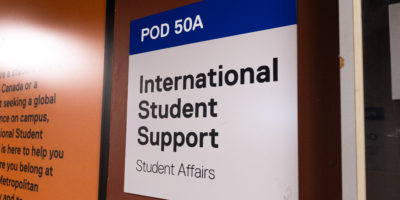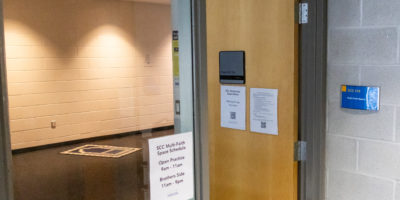By Jessie Stones
Julia Whyte is only 16 years old and already she’s worried about paying her university tuition.
The 12th-grader at Leaside High School in East York is one of many students in Ontario who will face an economic catastrophe if the Harris government’s reported $800-million cuts to education are realized.
“I don’t really have plans … that aren’t school,” she says. “And if these cuts happen and tuition goes up, I don’t know if I’ll be able to afford it.”
She will already need scholarships and student loans to get through university.
“I worked all summer,” she says. “I saved half, but that’s only minimum wage. It doesn’t go very far.” She has high enough marks this semester to be eligible for some scholarships, but doesn’t know whether they’ll e as high in OAC.
“And I don’t even know what’s going to happen to people who don’t have the marks.”
Etobicoke School of the Arts OAC student Andrew Sellers has the same problem. “I have to look at where the scholarships are,” he says. “Carleton can guarantee me $3,000 a year if my marks are high enough, but if their funds are cut, I don’t know where I’ll be able to afford to go.
“These cuts will really limit my choices as to what and where I study.”
Students already in university are also worried about the high, and potentially higher, costs of education. Second-year RTA student Julia Cohen says a university degree should not be an unattainable goal. “It’s completely unrealistic to expect students to afford to live and go to school on a part-time job,” she says. “If tuition goes up any more, only people who are supported by their parents will be able to afford university.”
Julia Whyte’s mother, Rosemary, agrees. “Basically more cuts would make postsecondary education for the upper classes only,” she says. “And that’s not fair.”












Leave a Reply